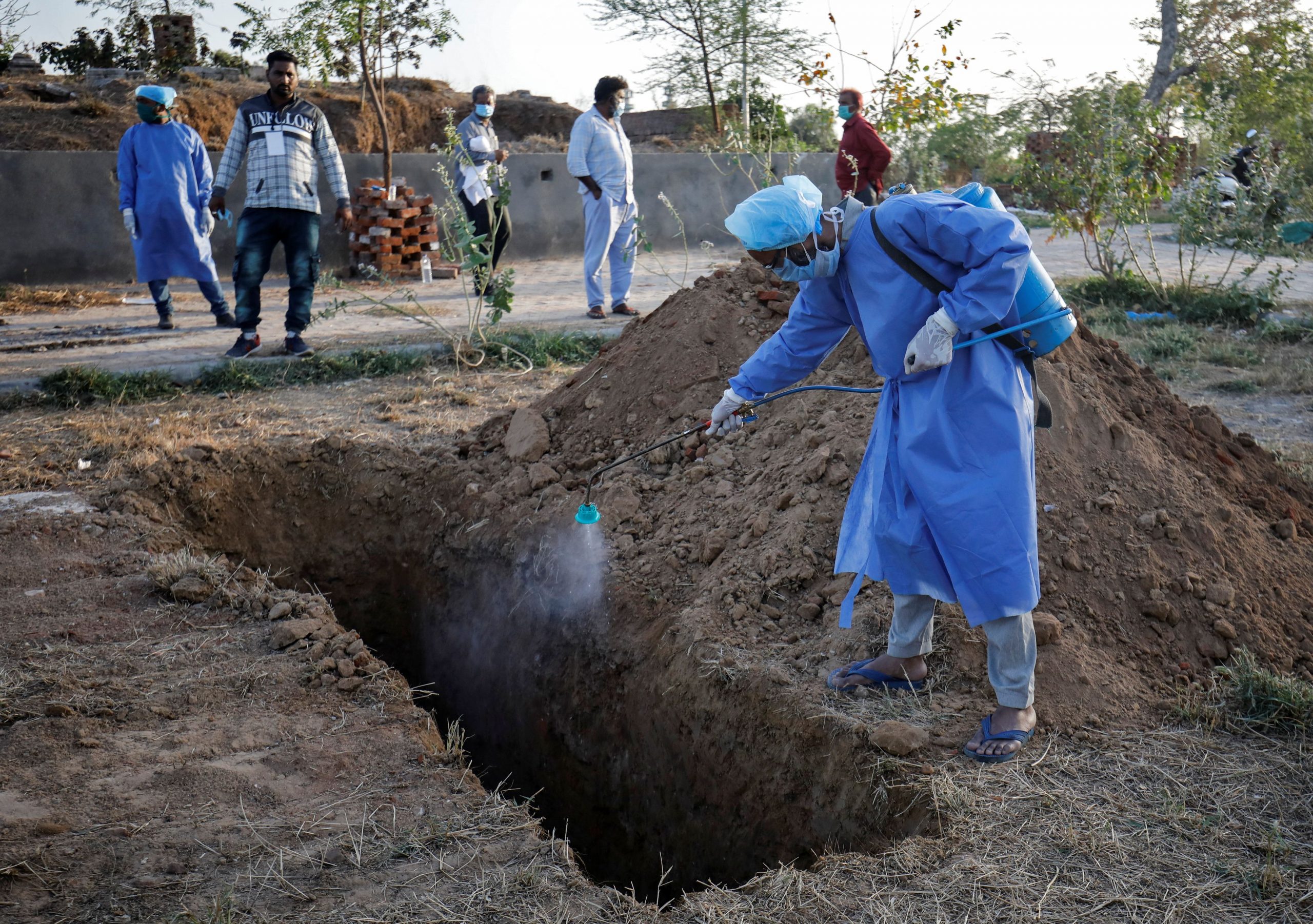
In the midst of the pandemic we are witness to the immense silent tragedy of loved ones not being able to say goodbye to those they have lost. For families battling infection and death of loved ones, this is one kind of suffering which is unnecessary, which should not have to further burden bereaved families. The ability to give a dignified farewell to our loved ones is often the starting point in coming to terms with uncountable loss. The process of grieving begins with this important ritualized moment.
In the last three months, stories have proliferated on the number of people who could not be with their parents, spouses and children in their last moments because of fears about the highly infectious nature of COVID-19. This highly infectious nature of the virus, and hospital restrictions, often mean that it is impossible for us to be able to stand by the bedside of those that we love in their last moments.
The stigma around COVID-19 has spread from the living to the dead, even though there are detailed scientific and official guidelines that show us that a dignified death is possible. It is deeply saddening that the fear and stigma around COVID-19 has caused families to abandon performing the last rites for their family members. Journalists have reported of public officials and bystanders performing the last rites of individuals with family members unwilling to do so for fear the infection.
As we progress through the pandemic, science and scientific understanding will often ask us to do difficult things such as practice physical distancing and wear masks. But a proper and complete understanding of the disease and dynamics is needed along with a strong public campaign to improve our understanding of the disease. In these challenging times science must guide us in negotiating the difficult boundary between public and individual safety a, misapprehension and stigma.
Everyone has the right to say goodbye to their loved ones in a respectful manner. It is critical for us to know that it is completely safe for the last rites of a loved one to be performed by family members and for them to have a respectful burial/cremation. The Ministry of Health and Family Welfare released a set of guidelines on burials on the 15th of March. It clearly states that the family may view the face of their loved one before they are cremated/buried and. All religious rituals that do not require contact are allowed.
There is indeed no scientific reason why people who have lost their loved ones to COVID-19 cannot see the face of their loved one before the last rites, and there is no rational or scientific barrier for them to undertake with due safety the religious and cultural practices associated with death rites which they believe in and which will give them solace, as long as this does not involve crowding and physical contact. Families can ensure that a smaller number of those closest to the person who died gather; that they wear masks and maintain physical distancing; that they try to avoid very old and very young people joining the last rite gatherings; if there is eating and drinking, this is done with separate (preferably disposable) utensils; and as far as possible, the gatherings are organized in the open rather than closed spaces.
Finally, cremation or burial of COVID19 associated victims observing these standard precautions does not endanger the health of any one living around the cremation or burial grounds.
We write this open letter to the people of India both for the purpose of scientific public education, but also to express our deepest sympathies to those who have lost and will lose their loved ones to the COVID-19 virus. We want to stand with them at their hour of grief, and to support them as they are able to conduct the last rites and ceremonies that are customary for them with the necessary precautions and safety. We reiterate that there is no scientific reason whatsoever for the suffering of families and friends who have lost loved ones to COVID-19 to be aggravated by not being able to bid a dignified and loving farewell to the departed.
Rajmohan Gandhi
Nayantara Sahgal
Romila Thapar
Sharmila Tagore
Vikram Patel
Shah Alam Khan
Sujatha Rao
Keshav Desiraju
Vandana Prasad
Mathew Varghese
Apoorvanand
Dinesh Mohan
Ritupriya
Vikas Bajpai
Imrana Qadeer
Syeda Hameed
John Dayal
Navsharan Singh
Natasha Badhwar
Radhika Alkazi
Rita Manchanda
Tapan Bose
Armaan Alkazi
Anwar ul Haq
Harsh Mander
Githa Hariharan
T Sunderaraman
Read the letter in Hindi here.




